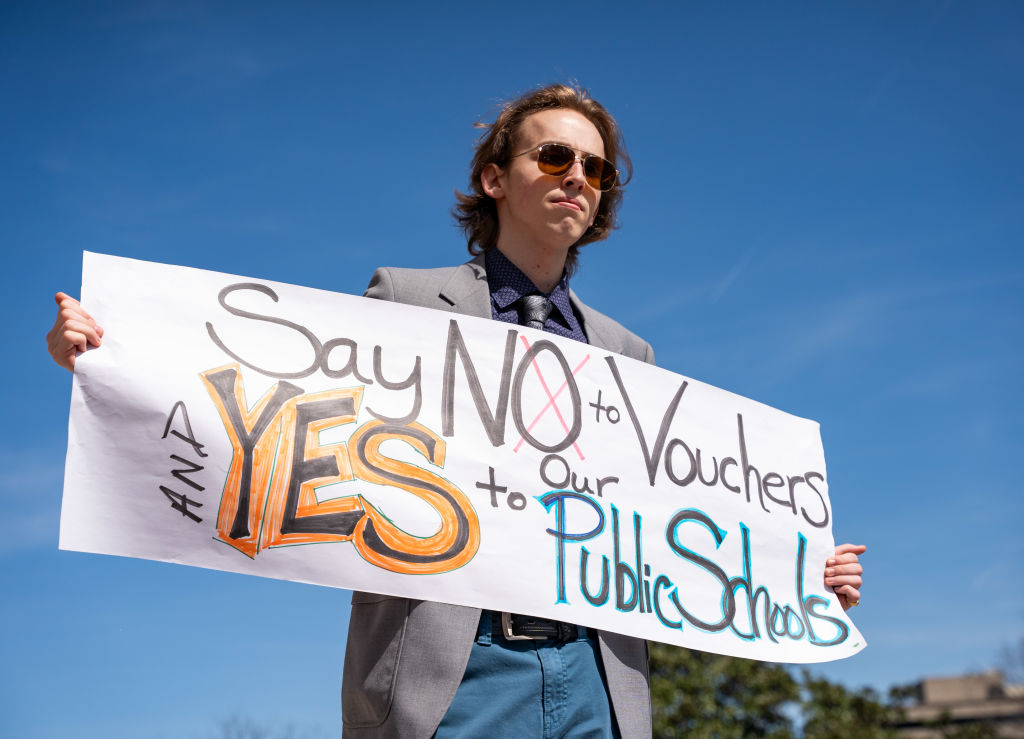When the Texas state House education committee held a hearing on a proposed voucher bill on March 11, parent Hollie Plemons was among the first people to arrive in the committee room. She’d spend much of the next twelve hours in the cramped, crowded space, waiting for her chance at the mic. And when her name was finally called, she didn’t hold back.
“I told them exactly how bad this bill is and that we’re being bamboozled by our own party,” recalls Plemons, a Republican Party activist and precinct chair in Tarrant County. “Vouchers aren’t conservative. They’re just not.”
In recent years, “school choice” programs that allow families to use public tax dollars to pay for alternatives to public schools for their kids have been proliferating wildly. This January, Tennessee became the latest of a dozen states to adopt so-called universal vouchers. Such programs allow even the wealthiest families to access public funds to pay for private school tuition, homeschooling costs, and virtually anything that can be defined as an education-related expense. In Arizona and Florida, both of which have universal voucher programs, taxpayer dollars have been used to purchase theme park tickets, flat screen TVs, and golf equipment, all in the name of “education.” Texas may be next.
But while voucher proponents point to the growing list of states joining what they call the “education freedom” club as evidence of their cause’s momentum, such cheerleading ignores a growing revolt from the Right.
For years now, the loudest opposition to school privatization has come from public school advocates and teachers’ unions, arguing that vouchers steal tax dollars from local public schools, ultimately bleeding…
Auteur: Jennifer C. Berkshire

